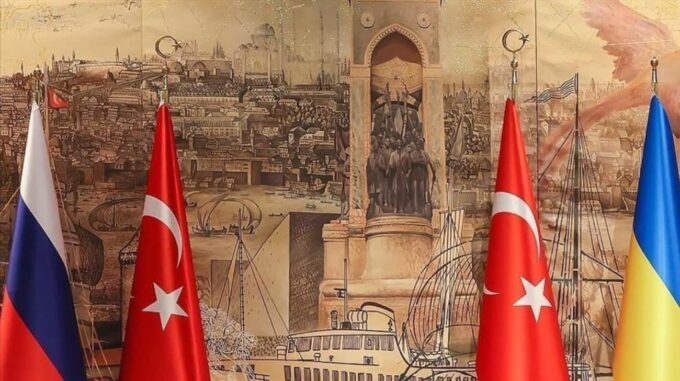Meetings between Ukraine, Russia, and Turkey in Istanbul: what is known ahead of the important negotiations

At the Dolmabahçe Palace in Istanbul, a historic site that officially serves as the residence of the Turkish president, significant international negotiations involving representatives of Ukraine, Russia, and Turkey are scheduled to take place in the coming days. According to the Turkish agency Anadolu, key meetings are set for this Friday at 10:45 and 12:30 respectively. The plan is for the first trilateral meeting — involving Turkey, the United States, and Ukraine — to begin at 10:45 in Tаврия, in a format aimed at facilitating a peaceful resolution and identifying key areas for further cooperation. Following this, a meeting of delegations of Ukraine, Russia, and Turkey without other partners is planned in the halls of Dolmabahçe, starting at 12:30. This particular meeting is crucial for the future resolution of the conflict in eastern Ukraine and the possible resumption of diplomatic talks, as its outcome will influence the subsequent course of events. What preceded these significant events? Earlier, the Ukrainian Foreign Ministry and the "Ukrainskaya Pravda" media reported that negotiations between the delegations of Ukraine and Russia were planned in Istanbul for this week. According to reports, they were to start on Friday, May 16, opening a new chapter in the relations between the two countries, which have been strained since Russia's full-scale invasion of Ukraine. Additionally, it is known that the Russian delegation expects to arrive in Istanbul at 10 a.m. Meanwhile, the head of the Russian delegation and assistant to the Russian president, Vladimir Medinsky, stated that Ukrainian representatives would be waiting for negotiations in the upscale city at that time. However, in reality, Moscow sent a delegation of lower level, led by Medinsky, raising questions about the seriousness of the Kremlin’s intentions regarding constructive dialogue. Earlier, on May 15, Ukrainian President Volodymyr Zelensky traveled to Ankara, expecting the arrival of Russian leader Vladimir Putin to participate in a two-day meeting with the Russian side. However, Kremlin spokesman Dmitry Peskov announced that Vladimir Putin would not come to Istanbul; instead, Russia delegated lower-level representatives, including Medinsky, for the negotiations. These developments elicited mixed reactions in Ukraine and the international community. U.S. Secretary of State Antony Blinken expressed skepticism about the prospects for significant progress in the Istanbul talks between Ukraine and Russia, given Putin’s absence and Russia’s unclear motives. At the same time, Ukrainian leader Volodymyr Zelensky decided to personally contribute to the diplomatic process by delegating a government delegation led by Defense Minister Rustem Umerov to Istanbul. Zelensky also confirmed that the United States and Turkey would act as mediators in the peace negotiations, hinting at the importance of international support in reaching agreements. Additionally, the Ukrainian president approved the composition of the delegation for the talks in Istanbul, which includes 12 representatives led by the director of Ukraine’s Defense Ministry. The goals of these negotiations are to find a fair and sustainable peace, which, according to the Ukrainian leader, is urgent for resolving the conflict. It is worth noting that, according to Zelensky’s decree, the head of the delegation can make changes to the composition with the president’s approval, and the delegation will have secret negotiation directives, emphasizing the importance and confidentiality of this diplomatic mission. Thus, the Ukrainian, Russian, and Turkish sides face extremely important tasks — to bring to a conclusion the long-awaited diplomatic process, which could become part of a broader international consensus on Ukraine’s future and regional stability, considering the complex geopolitical situation. Expectations and assumptions regarding the outcomes of these meetings remain tense, but their potential impact on the further dynamics of the conflict is hard to overestimate.

